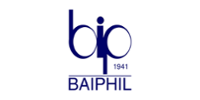Event Details
I. Rationale: The LEAP Framework
The LEAP program (Leadership Effectiveness and Advancement Program) is a course for Managers - those who are responsible for a bigger unit and who are directly supervising officers, supervisors and staff and those who have attended a supervisory program and are on their career path to becoming managers.
This proposed program uses the same Critical 3 framework: Task Management, Self-Management and People Management. However, the framework extends to the concept of integrating Mind and Heart Together. In this case, there is a module that tackles the conceptual skill of Planning and Delegation. The aim is to sharpen the Mind of the Manager. The personal leadership skill to be able to manage oneself effectively, which is Time Management, and the people leadership skill of Leadership Style, Managing Change and Motivation to enhance establishing effective relationship with superiors and subordinates aims to shape the Heart of a Manager.
Planning is a big management system. This module is designed to build/enhance the participants skill in setting Objectives and Key Performance Indicators. The latter are indicators of Quality and Quantity merged into a KPI, which, ultimately, is the basis for performance appraisal. This will enable the Manager to render effective performance appraisal.
Planning-Performance Management is a management system. It is used by the manager to manage productivity in his/her department. It is a competency that every Manager needs to undertake in the workplace.
The other managerial concept that will be discussed is delegation – an aid for the Manager to focus on core functions and train the staff for higher career levels.
With the external environment in "turbulence, the topic on Managing Change aims to provide skills to Managers to upgrade level of readiness from acceptance to managing the change process.
The topic on Leadership Style presents an option to have a style to address different situations in the workplace. A manager will be able to analyze his style and see options on how effective style can be used to address a variety of situations.
The program will end with a review of the Hierarchy of Needs theory (A. Maslow) and how a Manager can use effective motivation approaches.
II. Program Objectives
Participants will be able to:
o Discuss the planning process – how to set projections, the SMART way of setting objectives; practice defining key performance indicators for different kinds of objectives: financial, regularly occurring functions, people management/
behavioral and operations.
o Discuss trends in the banking industry that are driving change in the external environment; discuss the qualities of one who can be successful in the change process with the aid of the short video – "Who Stole my Cheese"; identify ways to manage the change process.
o Demonstrate the concept of delegation and how to use it in the workplace in order for the manager to focus on key and critical issues, to be unloaded with some administrative responsibilities and to train staff higher career levels.
o Discuss the situational leadership theory: how to analyze one's dominant style and how to shift one's style to fit individual needs.
o Discuss effective ways to motivate staff using Maslow's theory.
III. Training Strategy/Methodology:
A mix of training methodologies will be used to enhance the learning process. However, the limitations of virtual learning will limit the optimum use of these methodologies. To address this, the following will be utilized:
o Feedbacking process during the program shall be used using the chat box. Participants are requested to have access to a microphone and good internet connection to be able to respond to questions when called or to respond thru the chat box. This will enable them to participate in so many ways: by raising questions, by giving comments by answering questions of the SME.
o Participants shall be requested to respond to feedback questionnaires.
o An instrument on the leadership style will be sent ahead of the program so participants can fill it up. Discussion of leadership profile from the answers to the instrument will be undertaken during the program.
o A Individualized activity on Time Management and Motivation shall be utilized.
IV. Program Outline:
Program Overview
o Program Framework
o Objectives
o Leveling Expectations
The Management Function:
o KRAs
o Managerial Roles
The Planning and Performance Management System as a Management System:
· Processes
· Functions
· KRAs
Setting Objectives
· From KRA to Objectives
· SMART Targets/Objectives
· Defining KPIs
o Understanding KPIs
o Quality and Quantity are Integrated in a KPI
o Defining KPIs per Objective
Understanding Delegation
· Manager's Source of Power – Position Power
· Powers/Authorities of a Manager in the Workplace
· The Management Tool of Delegation
· The levels of delegation
Managing Change
· Trends in the Banking Industry that influence change approaches
· Film: Who Moved my Cheese
· Managing Change Concepts: Managerial Responsibility
Time Management
· Time Management Matrix
· Identifying Important Matters; Doing a 1 Week Time Schedule
The Situational Leadership Style
· Leadership Style is a Compelling Effectiveness to Cause Action
· The Different Styles: Given Parameters
· One's Own Style: Analysis of Leadership Instrument
· Adapting One's Style to different Situations
Motivation
· Definition; Understanding the Concept
· The Theory of Need – Maslow's Theory
· Focusing on Social Needs to Motivate Staff.
V. Resource Speaker:
MS. ODETTE ABAYA-DE GUIA
Training Consultant
VI. Schedule:
Day 1: May 24, 2023 (Wednesday, 1:00 PM – 5:00 PM)
Day 2: May 25, 2023 (Thursday, 9:00 AM – 5:00 PM)
VII. Training Fee per Participant:
From Member Institution – P 4,200.00
From Non-Member Institution – P 5,880.00
**VAT inclusive
May 24 & 25, 2023GMT+8
